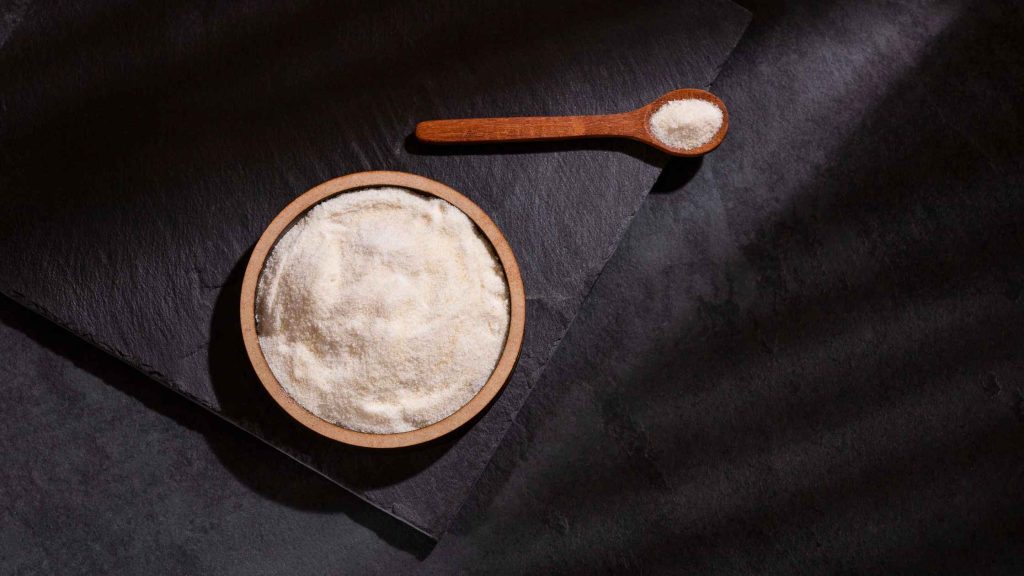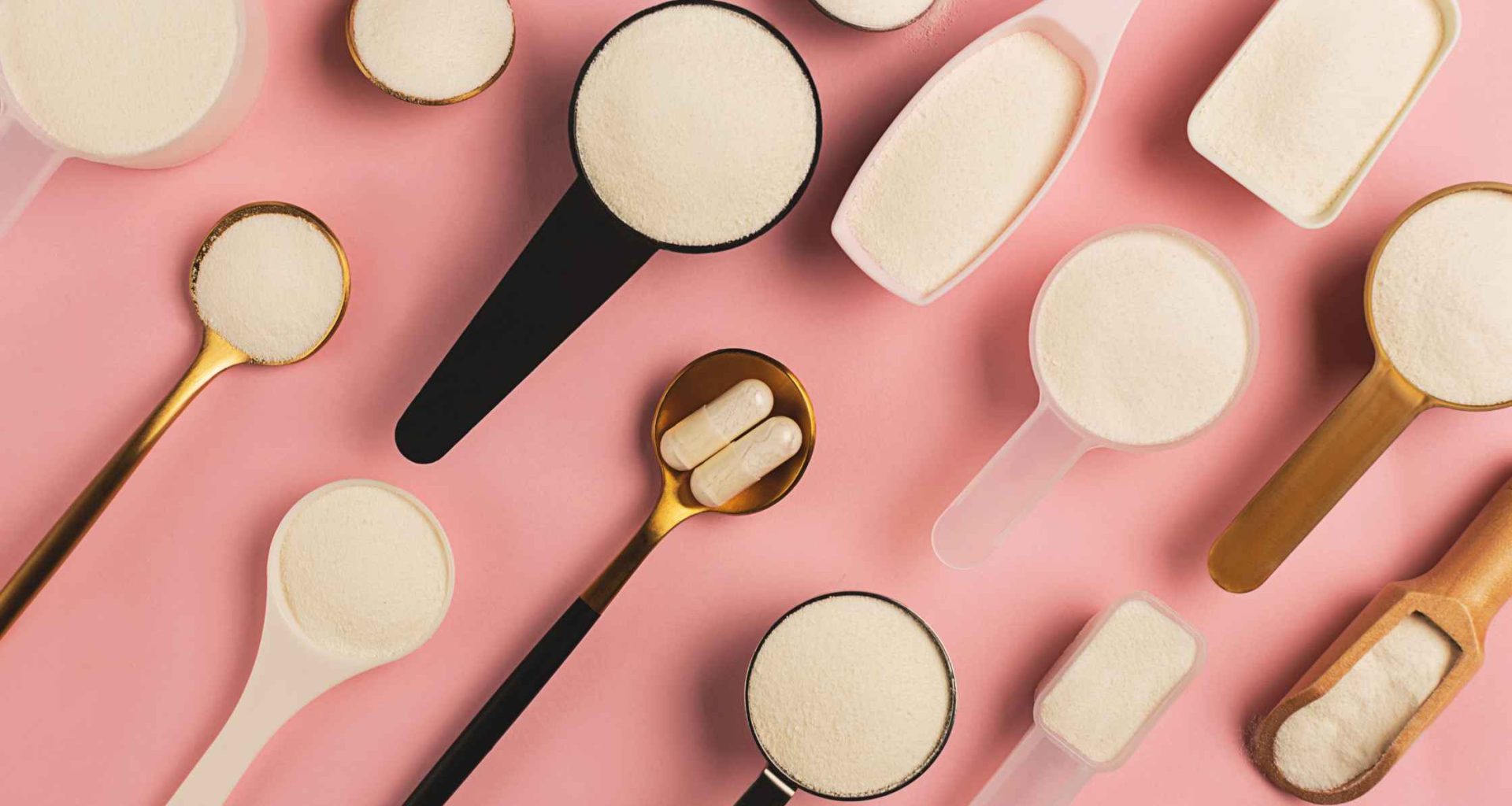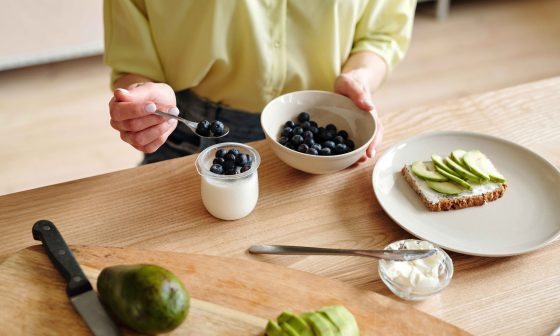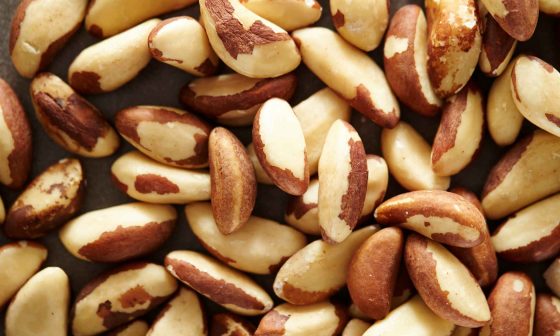What is collagen, hydrolyzed collagen and what can they do?
If you ask a question from the general public on what they’d think would help with promoting youthful skin, many would probably mention something about collagen or hydrolyzed collagen.
Collagen is the most abundant protein in the human body. In fact, did you know that 25-35% of all protein found in the body is collagen?
Collagen provides the body with strength, elasticity, tone and essentially structure. Although generally we may have the perception that collagen is found only in our skin, collagen fibers are actually found in connective tissue throughout the body. So it’s not just for beautifying; it also makes up the major building block in bones, joints and blood vessels.

Human body: The collagen powerhouse
Our body produces its own collagen, using 3 amino acids as “building blocks”; Glycine, Proline and Hydroxyproline. The problem starts as we age, when our ability to produce collagen naturally decreases thanks to mother nature!
Our bodies’ collagen-producing abilities decrease by 1% every year in our twenties, and up to 50% by the time we are 45. Over time, reduced collagen causes skin to “cave in” and form wrinkles. Now who wants that?
Poor lifestyle choices like smoking can cause the collagen formation rate to decrease. Less collagen in our body leads to a loss of elasticity, strength, and tone throughout the body. This can also be noticed through signs of aging such as: brittle nails, cellulite, sagging skin, loss of moisture, weak ligaments, aching joints, arthritis, and cartilage injuries which can ultimately translate into many other complications in the body.
It’s never too late!
There are ways to bring the collagen formation rate up again, such as: providing the body with the amino acid building blocks of collagen. One way to do this is to consume collagen rich foods such as bone broth and chicken feet. Now if that doesn’t sound too appealing for you, there are other options out there too!
Another way to increase collagen formation rate, is supplementing with collagen. If you’re not getting enough collagen in your diet, you may benefit from supplementation and notice reduced signs of aging, increased strength, tone and overall health. Abundant collagen “pushes the skin up & out” creating a more youthful looking skin.
 Ready to add Collagen to your custom vitamin formula?
Ready to add Collagen to your custom vitamin formula?
If you are a practitioner, and for registering your clinic: Click here.
If you are a patient, click here to create your custom vitamin formula!
When considering supplementation with collagen, it is important to know that there are at least 28 different kinds of collagen. This is while our body is mainly composed of 3 main types of collagen:
Type 1 collagen: think exterior: hair, skin, nails.
Type 2 collagen: connective tissues: joints, ligaments and cartilages.
Type 3 collagen: muscle fibers and organs: liver, lungs, and kidney.
Supplemental collagen is mainly found in abundance as type 1.
What’s the source of supplemental collagen?
When choosing your collagen supplement, there are options as to what the supplement is derived from.
Bovine collagen is mainly derived and sourced from cattle and is naturally high in type 1 collagen, which makes bovine collagen especially useful for increasing skin moisture, reducing fine lines and wrinkles, and adding elasticity back to the skin.
What is Hydrolyzed Collagen?
When looking for a collagen supplement, you have to make sure it is 100% hydrolyzed. Why you ask?
Supplemental collagen doesn’t have the same structure as the collagen that the body produces and stores naturally. That’s where Hydrolyzed Collagen comes into play.
For collagen to arrive at a more absorbable form, it has to go through the chemical process of hydrolysis, where proteins are broken down into their smaller building blocks – the collagen peptides or amino acids, finally arriving at their hydrolyzed form, known as Hydrolyzed Collagen. Through this process, collagen becomes more bioavailable and thus easier to absorb for your body.
How much Collagen do I need every day?
As little as 10 grams a day is a great start. For most people, improvements in nail and hair growth become apparent after taking this amount consistently for 2+ months.
A good rule to go by for calculating how much collagen you need can be calculated via this formula:
Your body weight (in kg) x 30% = collagen needed (in g).
So as an example, if you weigh 60 kg, then the amount of collagen you’ll need per day is:
60 kg x 30% = 18g collagen needed/day
What are the benefits associated with taking Collagen?
- Improved bone, and connective tissue health (joints, cartilage, and ligaments).
- Improved digestive health.
- Immune support.
- Improved appearance of skin, hair and nails.
Important Things to Remember:
- Collagen is not a complete protein and is not intended to be taken as a meal replacement or as your only source of protein.
- There is no toxicity level known with over-consumption, but Collagen is a protein so excess amounts will turn into extra calories and might contribute to unwanted weight gain.
- Collagen generally does not cause side effects however if you are experiencing any digestive disturbances, lower your dose and talk to your physician.
VitaminLab always recommends you to speak to your doctor about starting any new supplements.






